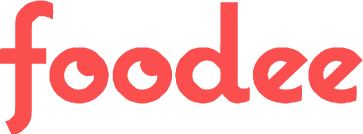
Career and business advice from top 10 CEOs
posted on
When Fast Company put out its list of top 100 CEOs of 2019 according to hundreds of real employee opinions, it got me thinking about what kind of career and business advice I could glean. Anyone can be a bad or mediocre boss. But to be a good or great boss, according to thousands of employees, is much more difficult. What words of wisdom around business practices, personal, career and leadership goals and company culture can we learn from the top 10 CEOs of 2019? Here is some great business advice in bite-sized quotes that I found.
Career and business advice from Fast Company’s top 10 CEOs of 2019
LinkedIn’s Jeff Weiner’s business advice on compassion:
LinkedIn’s CEO Jeff Weiner said that his mentor, Fred Kaufman shared a quote that reframed his definition of success: “Wisdom without compassion is ruthlessness and compassion without wisdom is folly.” From this career and business advice, empathy quickly became a key component of Weiner’s leadership. Here’s how:
“The Dalai Lama explains it this way: Picture yourself walking along a mountainous trail. You come across a person being crushed by a boulder on their chest. The empathetic response would be to feel the same sense of crushing suffocation, thus rendering you helpless. The compassionate response would be to recognize that that person is in pain and doing everything within your power to remove the boulder and alleviate their suffering. Put another way, compassion is empathy plus action… Managing compassionately is not just a better way to build a team, it’s a better way to build a company.”—Jeff Weiner
Microsoft’s Satya Nadella on finding meaning in work:
Since 2014, Satya Nadella has been CEO of Microsoft—and his employees seem to love him. With a 98% employee approval rate on Glassdoor in 2019, Nadella knows how to make Microsoft a great place to work. Here are two great quotes of Nadella’s:
“I truly believe that each of us must find meaning in our work. The best work happens when you know that it’s not just work, but something that will improve other people’s lives.”—Satya Nadella
“A leader must see the external opportunities and the internal capability and culture, and all of the connections among them and respond to them before they become obvious parts of the conventional wisdom.”—Satya Nadella
VMware’s Pat Gelsinger on personal time management:
In his book, The Juggling Act: Bringing Balance to Your Faith, Family, and Work, VMware’s CEO Pat Gelsinger discusses personal time management tricks to ensure that you’re making the most every day.
“I recommend you do a detailed time study for yourself to see where you spend your time. Make an estimate of how many hours each week you take for the major activities of your life: work, school, rest, entertainment, hobbies, spouse, children, commuting, church, God, friends, and so on… Finally, with the summary in hand, make the difficult assessments about how you are using your time. Ask yourself: Any surprises? Areas where I just couldn’t imagine I was wasting—er, uh, um, spending—so much of my time? Is this where I want my time to go? Am I putting as much time as I’d like into the areas I want as the priorities in my life?”—Pat Gelsinger
Best Buy’s Hubert Joly on leaders:
The now-former CEO of Best Buy Hubert Joly explained to CNBC how he defied expectations at the company. Here’s what business advice he had to share:
“The most important thing we do is not the ideas we had, it’s who we put in position of leadership.”—Hubert Joly
In-N-Out Burger’s Lynsi Snyder’s business advice on culture:
When asked by Business Insider how In-N-Out Burger CEO Lynsi Snyder made the company a great place to work, here’s what she said:
“[Flexibility] is also good for our culture, but it means there is no shortcut to growing great leaders through training. Aside from that, our associates have told us that when they are growing and learning new things, they are more engaged in their job… We spend a lot of time doing activities together—we have annual trips, we play sports, and every year we have several trips to my Dad’s ranch, sometimes for workshops and play, sometimes just for In-N-Out family time.”—Lynsi Snyder
T-Mobile’s CEO John Legere on leadership:
T-Mobile’s CEO John Legere may have just announced that he plans to step down in 2020, but that doesn’t take away from the facts that his employees thought highly of him and that he overhauled the company. Here’s what the (usually outspoken) CEO has to say about looking back at his life:
“If you go back in my career, you’ll find I’ve always been a lead-from-the-front people-manager guy. I’ve always been outspoken. I’ve always attempted to break the mold. My advice to myself, then, would be to go all-in on it. The world doesn’t need another cookie-cutter business-school leader. The world needs somebody to stick out and be loud and proud.”—John Legere
Adobe’s Shantanu Narayen on goals:
If any one CEO has career and business advice around goal setting, both as an individual and for a company’s vision, it’s Adobe’s CEO Shantanu Narayen. He was ranked no.12 on Fortune’s “Businessperson of the Year” list in 2018 and named that same year as “Global Indian of the Year” by the Economic Times of India.
“If you can connect all the dots between what you see today and where you want to go, then it’s probably not ambitious enough or aspirational enough.”—Shantanu Narayen
H-E-B’s Charles C. Butt on efficiency versus experience:
Charles C. Butt is the CEO of H-E-B, an American supermarket chain based in San Antonio, Texas and with over 350 stores across the U.S. As a billionaire philanthropist, he spends much of his recent time and money improving Texas schools. Here’s what he told Dallas News about efficiency and experience as it related to both H-E-B and education:
“In the supermarket, you have cashiers who can check you out so fast you hardly knew you were there. Zoom, zoom, zoom, zoom zoom,” he said. “And we have some cashiers who are extremely popular with the customers who wait until they are available. How do you measure which one is most important to loyalty to the store?”—Charles C. Butt
McKinsey & Company’s Kevin Sneader on training and education:
McKinsey & Company is a U.S. management consulting firm that operates around the world. In July 2018, Kevin Sneader was elected as the company’s global managing partner. During a recent interview on the company’s website, Sneader discussed the importance of training and education in a digital future.
“We have a statistic: in 60 percent of today’s jobs, more than 30 percent of the tasks will be completely changed. It’s an industrial revolution, and ultimately more jobs will be created. But the real issue is what happens in this transition? How do you ensure that people get the skills they need to succeed? I’m an optimist. I think there’s a way through this that requires real investment in training and education.”—Kevin Sneader
Intuitive Surgical’s Gary S. Guthart on scale, pace and hard work:
Gary S. Guthart is the CEO of Intuitive Surgical, a company that develops and manufactures innovative robotic products for clinical surgeries. In such a fast-paced, technology-focused industry, it is no wonder that Forbes featured Guthart on hard work and innovation. Here’s what he had to say:
“The lesson from technology adoption in different industries is likely to apply here—progress will be slower than proponents predict in the near term and the scale of adoption may be greater than they predict in the long term. The spread of new approaches across an industry only looks revolutionary to those on the outside. Those on the inside know it to be the result of decades of hard work.”—Gary S. Guthart
Thanks for reading! If you liked this piece, check out our blog post on The power of goal setting on company culture.
Filed Under: Foodee HQ
